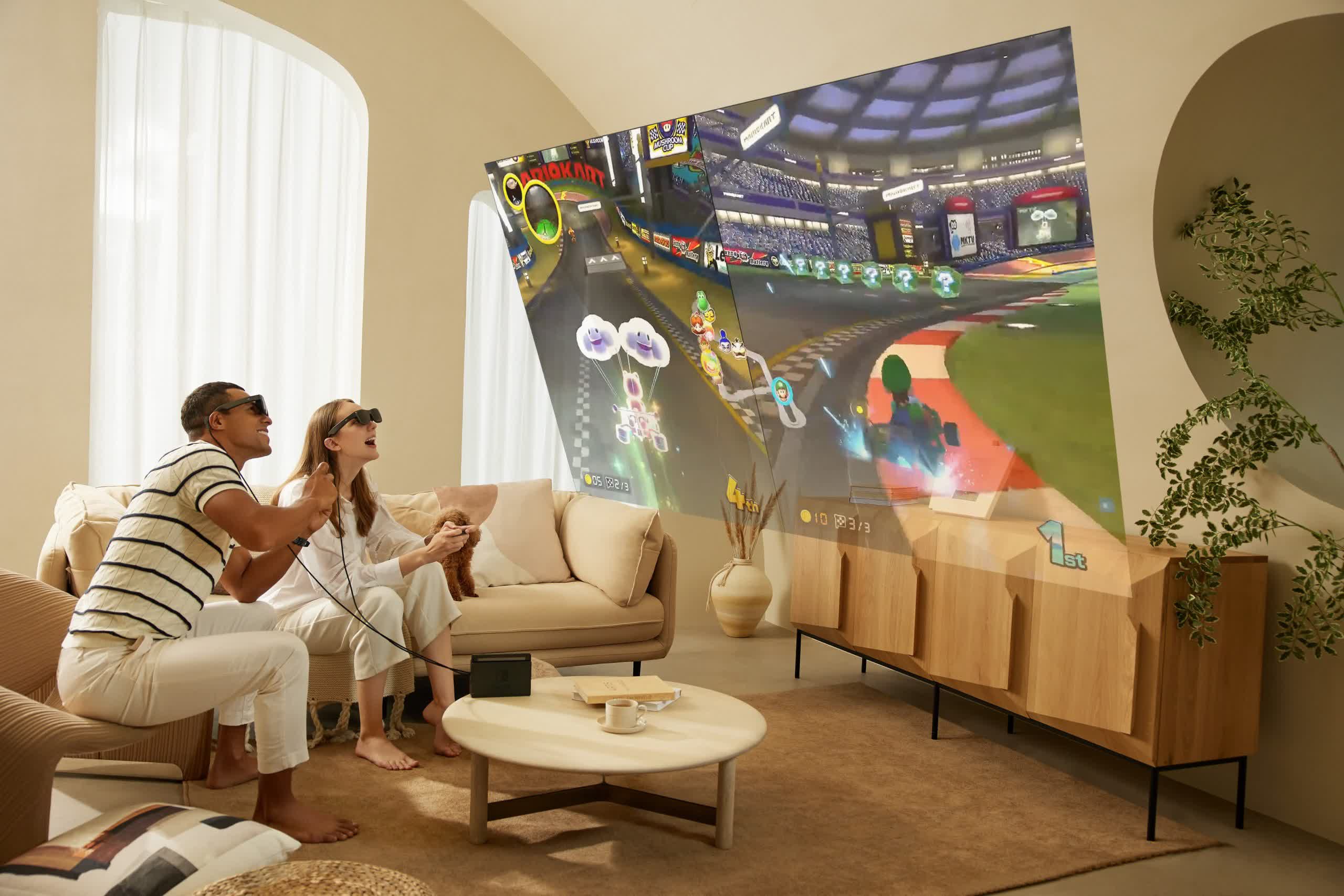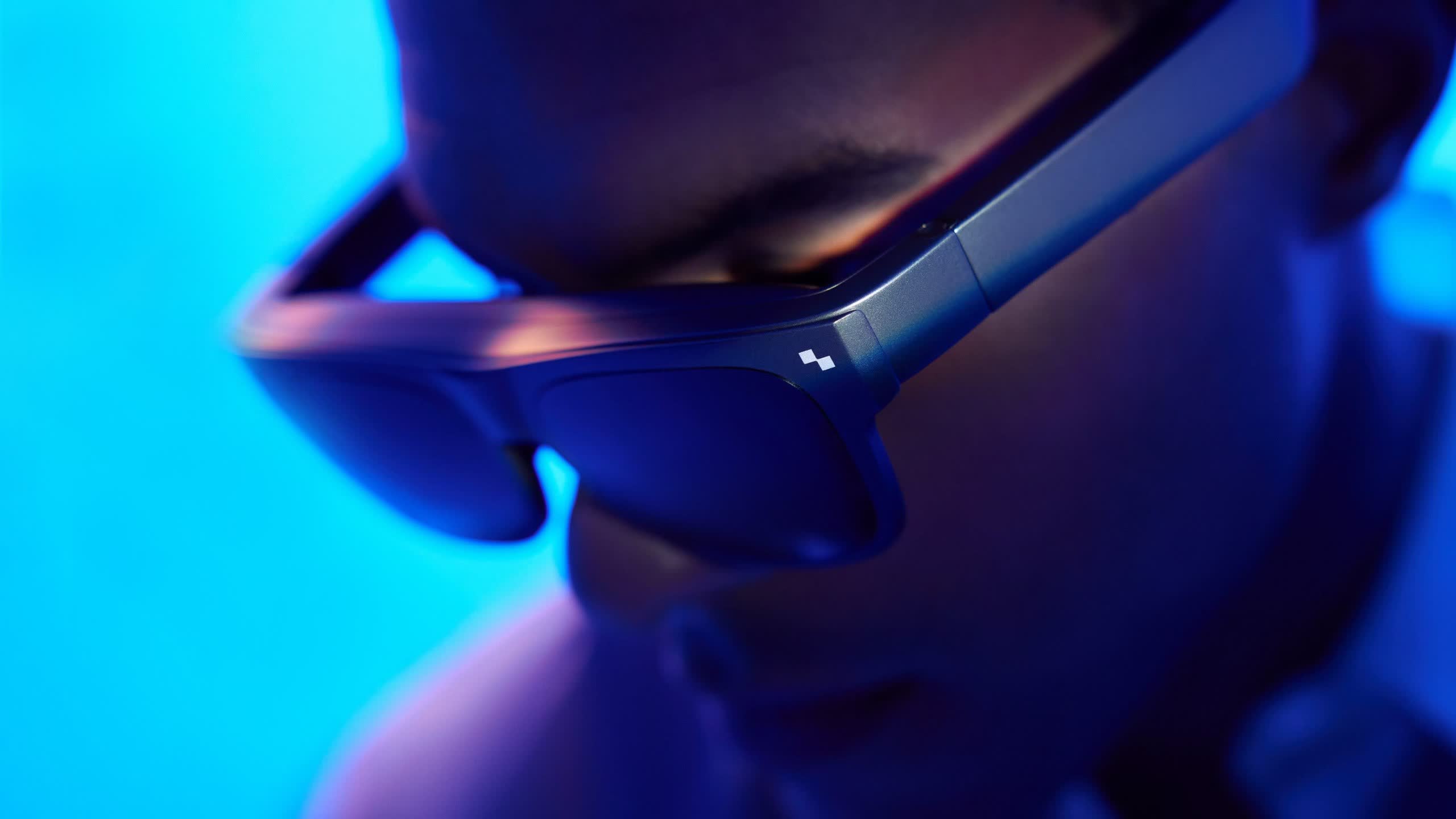Through the looking glass: Smart glasses haven't gotten as much attention as smartwatches in the wearables space, but they've quietly evolved since the infamous debut of Google Glass. Smart glasses can complement more mainstream devices like phones or computers in ways similar to smartwatches but offer some audiovisual advantages.
Display company TCL recently released a set of high-end smart glasses that use extended reality and augmented reality to provide a useful extra portable display for PCs, game consoles, and other devices. Among smart glasses, it seems most similar to the Xreal Air (formerly Nreal Air) glasses.
The main selling point of the TCL NXTWEAR S is its dual Micro-OLED display, which can project a virtual 130-inch 1080p screen in front of the wearer, which appears as if it's four meters away with a 45-degree field of vision. With the device's USB-C attachment, the virtual display can carry the video signal from a PlayStation, Xbox, Nintendo Switch, PC, tablet, or (likely Android) phone. It can also display 3D content while increasing the resolution to 3,840 x 1,080. The screen features a contrast ratio of over 100000:1 and manages a 108 percent sRGB color gamut.
The glasses weigh 85 grams, and the USB cable adds another 30. They have swappable front lenses for different sunlight conditions, adjustable nose pads, and attachable magnetic lenses for near-sighted users.

Available on Amazon for $450 (currently on sale for $400), the TCL NXTWEAR S glasses could compete with the Xreal Air, which has a similar price and feature set. Xreal was called Nreal until a trademark dispute forced the company to rebrand last month.
Google notoriously tried to popularize smart glasses a decade ago with the $1,500 Google Glass, but privacy concerns due to its onboard camera prevented it from ever taking off. The company tried again with a $1,000 enterprise-focused version but stopped selling them in March while promising to support current owners until September.
Those problems haven't deterred other companies from stepping into the smart glasses space with cheaper consumer-grade models. In the last few years, Meta, Razer, Amazon, Xiaomi, and others released smart glasses costing between roughly $200 and $400, mostly to carry functions from other devices into the user's field of vision.
Additionally, TCL recently unveiled the RayNeo X2 AR glasses, which feature more standalone processing power and capabilities than the NXTWEAR S, owing to its onboard Qualcomm Snapdragon XR2 processor. The company hasn't yet revealed price or availability details.
